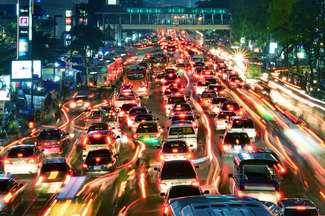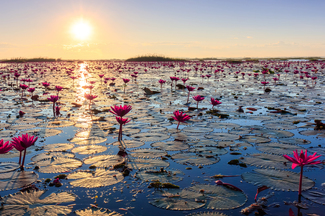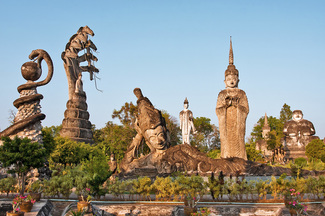CHINESE NEW YEAR IN THAILAND
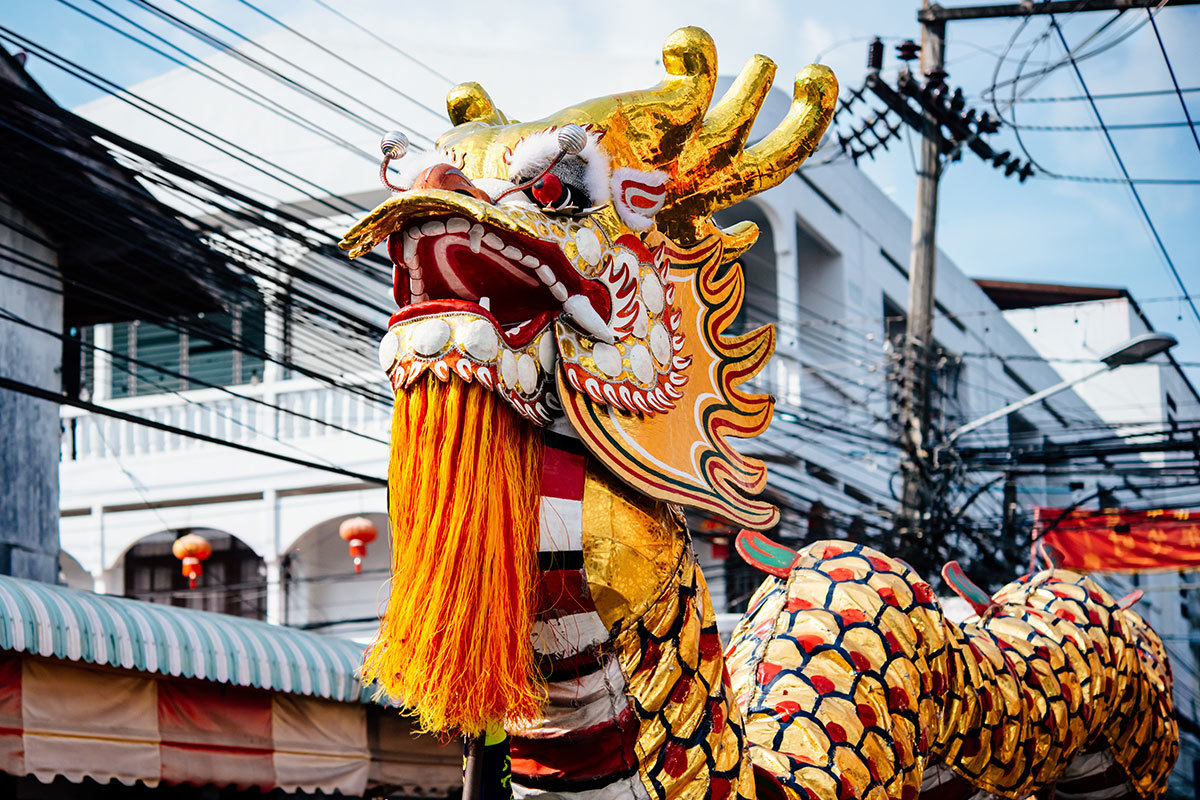
Chinese New Year, though not an official public holiday, is widely celebrated throughout the country, especially by those of Chinese decent. Thailand has about 10 million citizens of Chinese ancestry, roughly 14% of the population, making it the largest overseas Chinese community in the world. It is estimated that about 26 million Thais have partial Chinese ancestry, around 40% of the population, though most have become fully integrated into Thai society and identify solely as Thai.
 Lion’s head in preparation for a great parade
Lion’s head in preparation for a great parade
Thai-Chinese have long dominated the commercial sector and have historically had a prominent presence in Thai politics. They are a very visible, prosperous element of the middle class, and in the regal realm, King Rama I, founder of the present royal family the Chakri Dynasty, was part Chinese, and the father of his immediate predecessor, King Taksin, was an immigrant from the Guangdong province of southern China who married a Thai woman.
Whatever their origins, almost all ethnically Chinese citizens speak Thai exclusively and self-identify as Thai and generally practise Theravada Buddhism.
Chinese New Year, which according to the lunar calendar, falls between January 21stto February 20th, is not a public holiday and government offices and department stores all stay open. Nevertheless there is still plenty of time to celebrate and take advantage of the festive spirit.

Preparations at the Old Phuket town
One of the best places of course is Bangkok’s Chinatown, centred along the Yaowarat Road, where parades and dragon dances make their way through lantern-lit streets, glowing red, the colour of good luck and prosperity.

One of the many colourful parades in Chiang Mai
This year Princess Maha Chakri Sirindhorn will preside over the annual festival, festivities and cultural shows.
Chinese New Year is a time for family reunions, and everyone makes a special effort to return home to spend time with relatives, relax and overindulge in gastronomic excess. Children are given gifts in the form of red envelopes, ang pao, containing money, usually an even number – odd numbers are associated with funerals.
A fairly recent innovation is the practice of sending digital ang pao, cyber money gifts, which seems to have caught on particularly among the younger generations as it’s a new twist on an ancient tradition.
Everyone sports new clothes, almost invariably red, on the first day of the New Year to signify a fresh beginning. Families gather around the table to celebrate, give thanks and offer their best wishes for the year ahead.
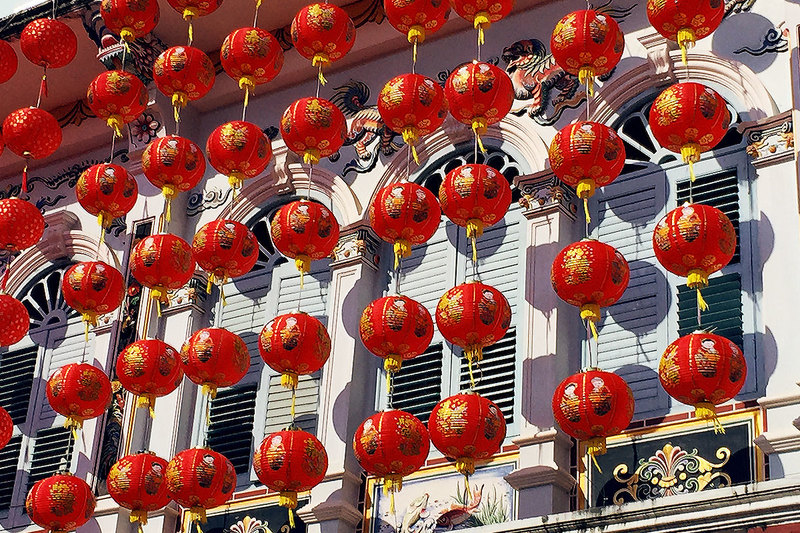
The streets are a riot of red
Also known as the Spring Festival, Chinese New Year was originally a ceremonial occasion devoted to praying to the gods to grant a good harvest season and as such the festival centres around food of which there is an abundance at this time of year.
Homes are opened to guests, roadside stalls are see
mingly everywhere and shopping malls and hotels compete to offer the best dining deals.
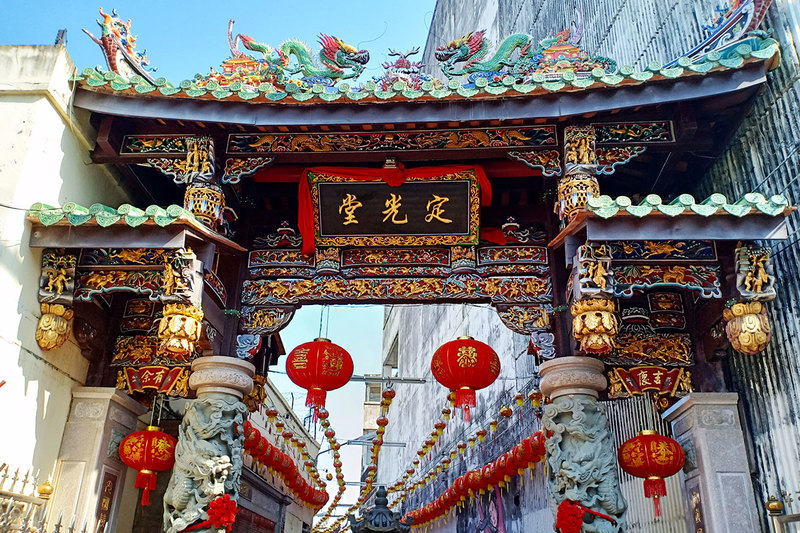 The Sang Tham shrine, Phuket, a reminder of the spiritual aspect of the festival
The Sang Tham shrine, Phuket, a reminder of the spiritual aspect of the festival
In Phuket, activities tend to centre around the Old Town’s Plaza, where this year a grand procession to honour the passing of King Bhumibol Adulyadej is to held as well as cultural performances, dragon parades and the ever-popular lion dances. The streets will be festooned with decorations and red lanterns.
Chiang Mai is another great place to bring in the New Year, with its own small Chinatown known as the Warorot Market where for two days at the beginning of the festival the street is closed to traffic and a large market set up. There are stalls everywhere selling Chinese and Thai food, and of course shows aplenty to see.
All around Thailand where sizeable Chinese communities reside there will be a celebration, one that continues for about fifteen days. This year, the Year of the Pig, begins on February 5thand ends on February 19th, culminating in the Lantern Festival.
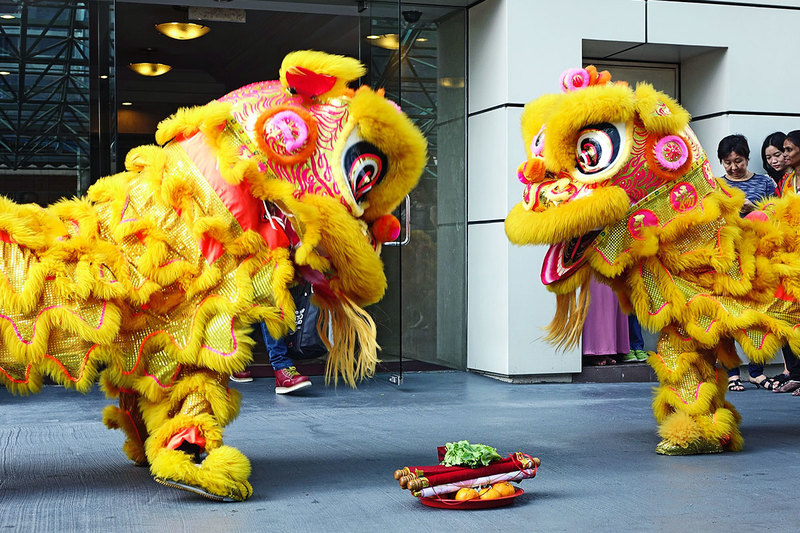 Fierce-looking Chinese lions
Fierce-looking Chinese lions
With a history dating back 2000 years, this day is often known as the Chinese Valentine’s Day, largely because in times past young girls were not at liberty to spend time outside the house, except for this one day when they could stroll about, gaze at the moon, play games, light lanterns and mingle with the opposite sex.
Chinese New Year, wherever may find yourself in Thailand is guaranteed to be fun, colourful and have plenty of delicious food to eat. It is a chance to cement bonds of family and friendship and be thankful for the bounty that the gods have given.










of collaborative energy




Before proceeding to use the website please carefully ready our Terms and Policies
I accept Diwerent's Terms and Conditions and Privacy Policy










